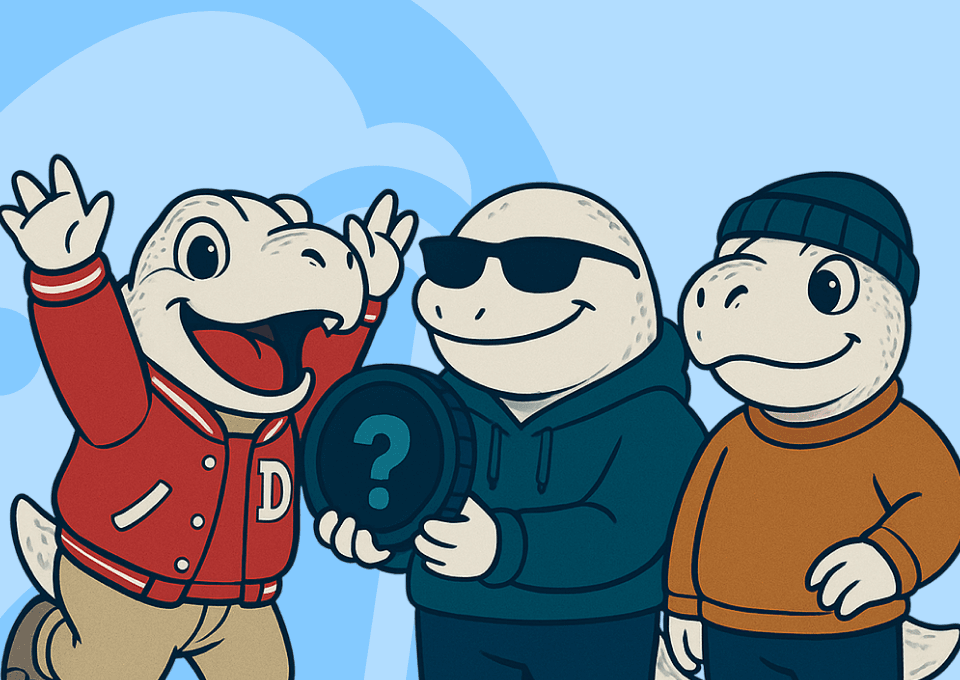Back to the U.S.: How the DUNA Act Is Bringing Crypto Home
By Pratik Bhuyan Updated October 8, 2025

Summary
- Wyoming’s DUNA Act gives DAOs legal personhood, liability protection, and recognition of onchain governance, creating the first U.S. legal framework built specifically for decentralized projects.
- Uniswap and Nouns DAO adopting the DUNA structure mark a turning point for major protocols seeking legitimacy and operational clarity within the United States.
- By choosing Wyoming over offshore havens, projects like Gas Network show that decentralized infrastructure can operate legally, transparently, and credibly within the U.S. ecosystem.
Introduction
For years, the story was the same: if you were launching a serious crypto protocol, you went offshore. Cayman Islands, BVI, Switzerland, Panama - you name it. Not because founders dreamed of sipping piña coladas on Seven Mile Beach, but because the U.S. simply had no workable legal framework for decentralized projects.
Need a treasury? Contracts with service providers? Liability protection? Tough luck. DAOs defaulted to Cayman foundations or wrapped themselves in Rube Goldberg corporate structures just to get basic things done. The result: American talent, American users, but entities domiciled thousands of miles away.
Enter Wyoming’s big swing: the DUNA Act
Wyoming, already known for pioneering the DAO LLC, took things a step further in 2024 with the Decentralized Unincorporated Nonprofit Association Act (DUNA Act). Think of it as a new kind of legal vehicle built for DAOs from the ground up.
Instead of forcing a DAO to pretend it’s a corporation or nonprofit, the DUNA Act recognizes decentralized governance in statute. Smart contracts, onchain votes, consensus rules - these aren’t “shadowy experiments” anymore. They’re legally valid governing principles under Wyoming law.
The perks?
- Legal personhood + limited liability for members
- Ability to hold property, sign contracts, and pay vendors
- Recognition of onchain decision-making as legitimate governance
- A U.S.-based framework that lets projects avoid the offshore shuffle
In short, it’s the first time crypto projects have a U.S. wrapper that doesn’t suffocate them with legacy corporate baggage.
Why this matters: Uniswap leads the way
Theory is one thing, but adoption is what counts. That’s why Uniswap’s recent proposal to set up “DUNI” (a Wyoming DUNA for Uniswap Governance) is such a big deal.
Uniswap is the poster child for DAOs that need real-world interfaces: bank accounts, legal contracts, fee distribution, grant management. By moving toward a DUNA, it’s signaling that U.S. law can finally support decentralized projects without forcing them offshore.
This is the pivot regulators and policymakers have been begging for: keep crypto innovation in the U.S. while giving projects a safe, recognized structure.
Nouns DAO: Early DUNA Adopter
Nouns DAO has been one of the earliest adopters of the DUNA framework. The community passed onchain proposals to establish a Wyoming-based DUNA, allocating funding for its first year of operation. This move gave Nouns DAO a formal legal wrapper, allowing it to better manage liability, interact with offchain entities, and create a clearer governance structure while staying true to its decentralized ethos.
Kraken’s Wyoming Move
Kraken has recently shifted its global headquarters to Cheyenne, Wyoming, citing the state’s pro-crypto laws, regulatory clarity, and low tax regime as key factors in the move. It also set up Kraken Financial under Wyoming’s SPDI (Special Purpose Depository Institution) framework, giving the firm a regulated charter for custody, deposit and fiduciary services in digital assets.
Meanwhile, Kraken’s Ink (or INK) is a Layer-2 network built on Optimism’s Superchain. The INK token is designed with a hard‐cap supply of 1 billion, will be airdropped via liquidity- and usage-based protocols (not governance), and integrated into Kraken’s core product suite.
Given Kraken’s strong anchoring in Wyoming law, its regulatory foresight, and how DUNA provides legal structure for DAOs & tokens functioning in the U.S., it seems plausible that the INK token or its governing body could adopt a DUNA framework to gain liability protection, clearer contracting, or legal recognition.
Where Gas Network Comes In
Gas Network is one of those unsung but critical pieces of crypto infrastructure: providing real-time gas fee data across blockchains so wallets, stablecoins, and dApps can make smarter fee decisions. It is not a flashy NFT or memecoin, but essential plumbing for Web3.
For Gas Network, a DUNA wrapper offers clear advantages. It would allow the project to legally hold and distribute treasury funds, sign contracts with wallets, exchanges, and partners, and give counterparties a trusted U.S. entity to work with - all while keeping governance fully onchain.
For a project like this, having a DUNA wrapper makes total sense:
- It can legally hold and distribute treasury funds.
- It can sign contracts with wallets, exchanges, and partners.
- It gives counterparties a U.S. entity they can actually deal with.
- All while leaving the protocol governance onchain, where it belongs.
Instead of retreating to the Caymans, Gas Network has planted its flag in Wyoming, has access to U.S. banking, and operates with credibility in a market that still matters most.
Interested in their gas optimization advantage? Check out our deep dive on how Gas Network outshines Chainlink and Pyth.
Why DUNA Could Shift the Tide
The big picture is this: crypto protocols don’t want to be offshore. They want legitimacy, they want regulatory clarity, and they want to operate where their users are. What they lacked was a framework that respected decentralization.
DUNA isn’t perfect though - taxes are real, federal rules still apply, and not every DAO will fit neatly. But for public infrastructure protocols like Gas Network, or governance-heavy giants like Uniswap, it’s a viable home base.
And if enough projects take this route, we might actually see the crypto brain drain reverse. Instead of American projects hiding overseas, they’ll be building openly - onshore, in daylight, and with legal protections that make sense.
Final Thoughts
Crypto has always been about building new systems that challenge old assumptions. The irony was that, until now, protocols had to rely on old-world offshore tricks just to function. That contradiction is now being addressed by Wyoming’s DUNA Act, which offers DAOs and token networks a home within U.S. law without compromising their decentralized design.
From Uniswap Governance forming “DUNI” to Gas Network leveraging the DUNA wrapper, this is the clearest sign yet that the U.S. is learning to meet crypto halfway.
The message is clear: the era of hiding in the Caymans is fading. For the first time, crypto can build openly on American soil, serving the American people and reaching far beyond.
Join the Beluga Brief
Dive deep into weekly insights, analysis, and strategies tailored to you, empowering you to navigate the volatile crypto markets with confidence.
Never be the last to know
and follow us on X








